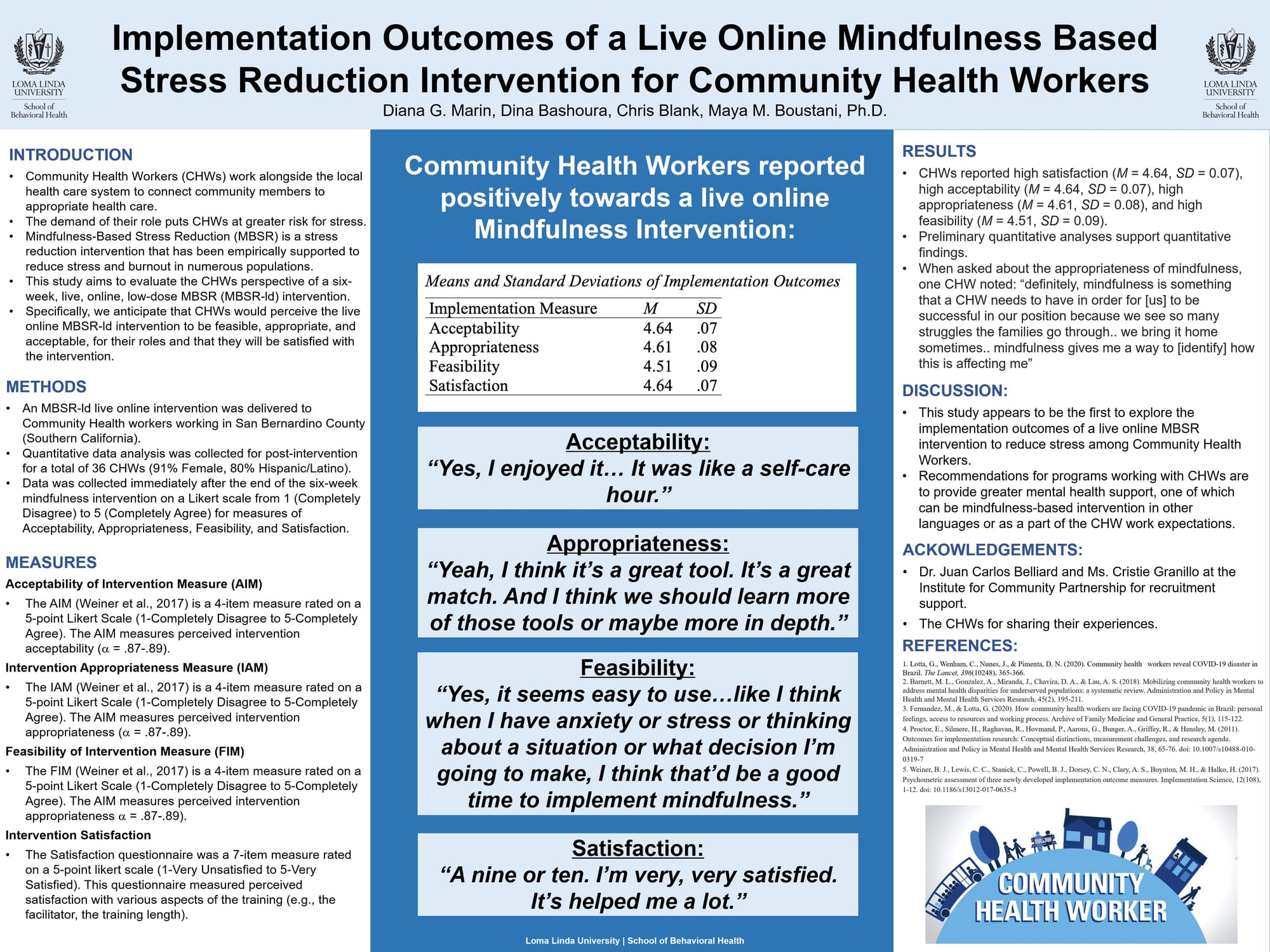Implementation Outcomes of a Live Online Mindfulness Based Stress Reduction Intervention for Community Health Workers

Community Health Workers (CHWs) work alongside the local health care system to connect community members to appropriate health care. The demand of their role puts CHWs at greater risk for stress. Mindfulness-Based Stress Reduction (MBSR) is a stress reduction intervention that has been empirically supported to reduce stress and burnout in numerous populations. This study aims to evaluate the CHWs perspective of a six-week, live, online, low-dose MBSR (MBSR-ld) intervention. Specifically, we anticipate that CHWs would perceive the live online MBSR-ld intervention to be feasible, appropriate, and acceptable, for their roles and that they will be satisfied with the intervention. An MBSR-ld live online intervention was delivered to Community Health workers working in San Bernardino County (Southern California). Quantitative data analysis was collected for post-intervention for a total of 36 CHWs (91% Female, 80% Hispanic/Latino). Data was collected immediately after the end of the six-week mindfulness intervention on a Likert scale from 1 (Completely Disagree) to 5 (Completely Agree) for measures of Acceptability, Appropriateness, Feasibility, and Satisfaction. Intervention Appropriateness Measure (IAM): The IAM (Weiner et al., 2017) is a 4-item measure rated on a 5-point Likert Scale (1-Completely Disagree to 5-Completely Agree). The AIM measures perceived intervention appropriateness ( = .87-.89). Feasibility of Intervention Measure (FIM): The FIM (Weiner et al., 2017) is a 4-item measure rated on a 5-point Likert Scale (1-Completely Disagree to 5-Completely Agree). The AIM measures perceived intervention appropriateness = .87-.89). Intervention Satisfaction: The Satisfaction questionnaire was a 7-item measure rated on a 5-point likert scale (1-Very Unsatisfied to 5-Very Satisfied). This questionnaire measured perceived satisfaction with various aspects of the training (e.g., the facilitator, the training length). CHWs reported high satisfaction (M = 4.64, SD = 0.07), high acceptability (M = 4.64, SD = 0.07), high appropriateness (M = 4.61, SD = 0.08), and high feasibility (M = 4.51, SD = 0.09). Preliminary quantitative analyses support quantitative findings. When asked about the appropriateness of mindfulness, one CHW noted: “definitely, mindfulness is something that a CHW needs to have in order for [us] to be successful in our position because we see so many struggles the families go through.. we bring it home sometimes.. mindfulness gives me a way to [identify] how this is affecting me?” This study appears to be the first to explore the implementation outcomes of a live online MBSR intervention to reduce stress among Community Health Workers. Recommendations for programs working with CHWs are to provide greater mental health support, one of which can be mindfulness-based intervention in other languages or as a part of the CHW work expectations.



